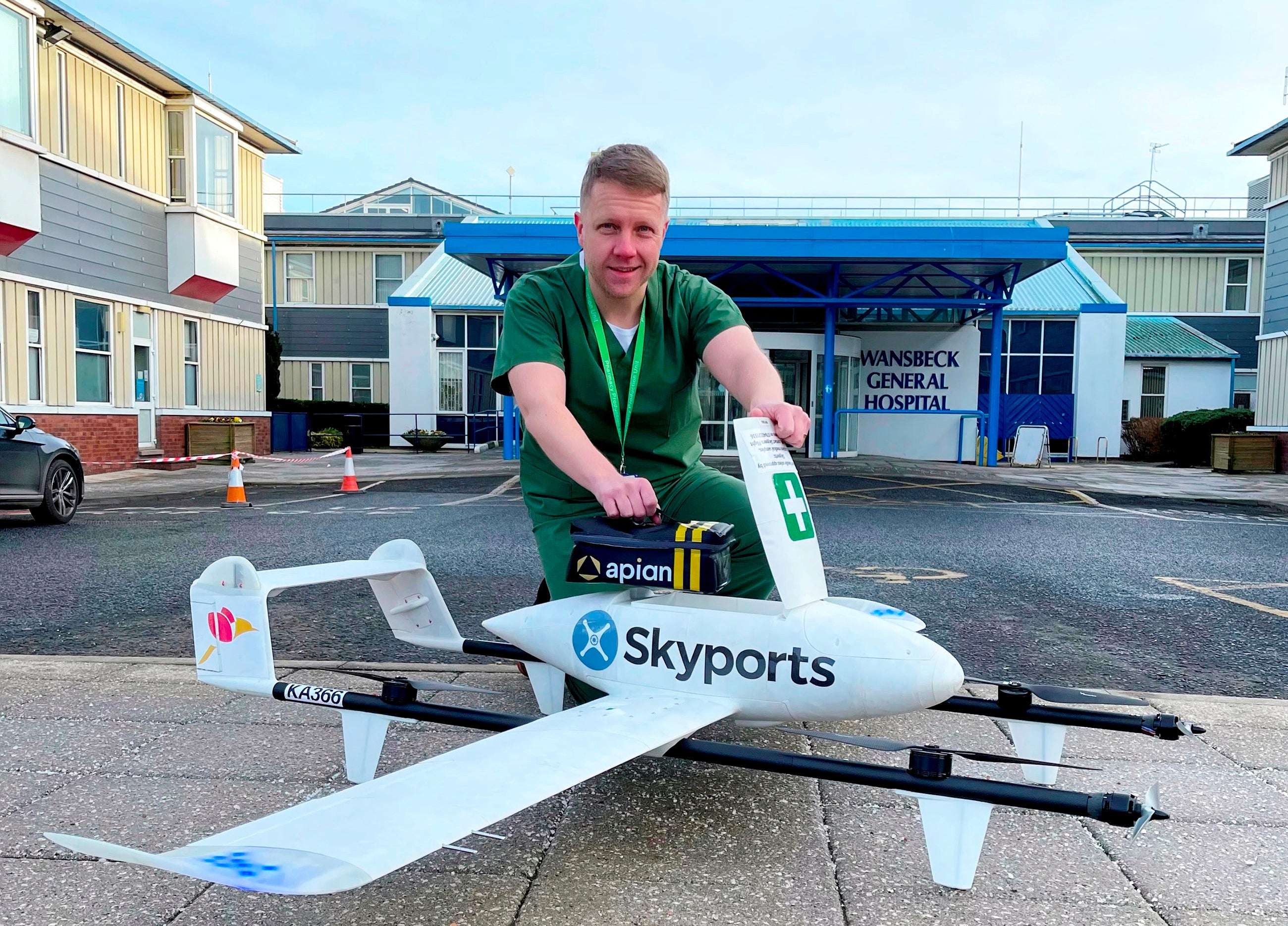Drone carries blood and cancer drugs between hospitals to cut emissions
Aircraft with top speed of 70mph will transport key medical supplies between sites in Northumberland

A drone is being used by an NHS trust to transport blood samples, cancer treatment and other drugs between hospitals as part of a trial aimed at reducing delivery times and cutting harmful carbon emissions.
Northumbria Healthcare said the “innovative” four-month project would start on Monday, 13 February and take place at Wansbeck General Hospital, Ashington, Alnwick Infirmary.
Initially, six test flights will carry clinical supplies, prescriptions, blood packs and mail between the three hospitals, which cover a roughly 50-mile stretch along the east coast.

This will increase to 15 in May if the trial proves successful, with the trust collecting logistical data to assess the impact on patient experience, staff resources as well as environmental benefits.
The trust partnered with Apian, a firm developed through the NHS Clinical Entrepreneurs Programme to explore the use of uncrewed aerial vehicles (UAVs).
The UK Civil Aviation Authority (CAA) gave approval for test flights to take place from today until 12 May.
Couriers are usually used to transport medical supplies between hospital sites, adding to the carbon emissions being pumped into the atmosphere by cars and fans.
The area covered by the trust is predominantly rural and it is hoped the drones will reduce both delivery times and emissions.
The project will use fully electric aircraft, which can take off and land vertically like a helicopter before flying horizontally like a plane by combining fixed wings with rotors.
The UAVs, which are managed by Skyports Drone Services, can carry up to 3kg of payload and have a maximum speed of 110km/h (almost 70mph).
The drones will fly along a route from Wansbeck General Hospital at Ashington up to Alnwick Infirmary and onto Berwick Infirmary.
The flights will deliver chemotherapy medication to Alnwick and onto Berwick Infirmary.
Return flights from Alnwick and Berwick will deliver pathology samples to Wansbeck. Other items that may be delivered include blood packs, prescriptions, medical equipment and mail.
Sir James Mackey, chief executive of Northumbria Healthcare NHS Foundation Trust, said: “As an innovative and forward-looking organisation, we are always interested to explore initiatives which may be able to improve how we deliver care to our communities.
“With the area we cover and the number of hospitals and other sites we manage, having effective logistics to get supplies where they need to be is vital, while we are always mindful of our need to drive efficiencies and reduce our impact on the environment.
“Using drones has the potential to help us deliver important drugs and supplies in a better, smarter way, so we are looking forward to seeing how the test flights go.
“We are committed to providing as much care as we can in our outlying communities, so logistical routes to Alnwick and Berwick are a key focus.”
Apian co-founder and medical director, Dr Christopher Law, said: “This trial builds on Apian’s work in the Solent where we flew the world’s first chemotherapy and delivered the UK’s first prescription medicine by drone.
“While there’s still much work to be done before UAVs can operate autonomously in nonsegregated airspace, there’s an equal and opposite amount of evidence for Apian to collect for how on-demand delivery can impact healthcare just as it has our personal lives.”






Join our commenting forum
Join thought-provoking conversations, follow other Independent readers and see their replies
0Comments